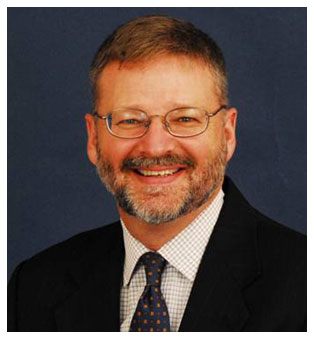
This week marks the Transportation Research Board's 91st annual meeting, a time when thousands of experts and professionals from across the country descend on the nation's capital to share their ideas, discoveries, theories, and fears with their colleagues in the transportation field. This year, falling in line with political rhetoric from both parties that ties transportation to job creation, the conference's theme is "putting innovation and people to work." Presumably, "innovation" refers in part to the fact that there is little to no agreement on how to pay for transportation investments at the federal level.

At one session today, "Politically Acceptable Solutions to Pay for a Re-formed Federal Program," the panel of experts proposed several ways to do so -- and none directly involved expansion of offshore or Arctic drilling. Each speaker began with a nearly identical slide, showing lines for transportation spending and gas tax revenue growing farther and farther apart over time, accompanied by an explanation of how better gas mileage means less money for the Highway Trust Fund -- the pool of money that has traditionally paid for the federal transportation program. Proceeding under the assumption that the federal gas tax will not be raised (a safe assumption, for now at least), the speakers proposed alternative strategies to fill that gap:
- Martin Wachs, a Berkeley professor and researcher at the RAND Corporation, described mileage-based user fees, where a GPS tracker measures the distance a car travels in a given year so they can be charged accordingly. Transportation is supposed to be paid by user fees, Wachs said, so this is a good match philosophically, but he added that it raises questions about privacy. Also, he said, the administrative costs of such a system would be incredibly high.
- David Burwell, director of the Carnegie Endowment for International Peace's Energy and Climate Program, suggested combining the gas tax with an "upstream" fee on every barrel of oil imported and/or refined in the U.S. Naturally, this would run into opposition from the anti-tax crowd (not to mention the oil lobby).
- Rich Little, director of the Keston Institute for Infrastructure at USC, suggested that pension funds could be encouraged to invest in transportation projects. However, Little admitted, that's just using tomorrow's money today, and the government would still need to raise additional money tomorrow to pay the pension funds back.
The session's final speaker, former Under Secretary of Transportation Roy Kienitz, told the packed audience at the Washington Hilton: "I'm here to be the dream crusher."
Even if any of these solutions could be made "politically acceptable," Kienitz said, they aren't really "solutions," thanks to one major shift which occurred sometime in the last ten to twenty years. After the advent of the automobile, the number of American drivers generally grew each year, and each American drove more miles than the year before. But not anymore: Since 1994, America's total vehicle-miles traveled started growing slower than the rate of inflation, and has actually been decreasing year-over-year since 2007 -- since 2004 on a per-capita basis. "That's before the recession," Kienitz reminded the audience.
The upshot is that even if a "politically acceptable solution" can be agreed upon, the problem will not go away. Even after the economy recovers, gas consumption and vehicle travel will continue to decline, and the shortfall will remain.
"It's Occam's razor," said Kienitz. "The simplest solution wins out, and the simplest solution is not to solve the problem."
What this means in practical terms is that if no agreement can be found to make the House and Senate's transportation bills pencil out, with gas taxes or tolls or oil drilling revenue, then that money will have to come from the general fund. Compared to the size of the entire federal budget, the $12 or $13 billion needed to fill in the Senate's two-year bill amounts to a "rounding error" in Kienitz's estimation. A precedent would then be set for transportation money coming from outside the Highway Trust Fund, and therefore from something other than fuel taxes or anything remotely resembling a user fee. Compared to what the other speakers suggested, this would be a far more dramatic change to the way this country pays for transportation.
If you attended other sessions at the TRB annual meeting and would like to share some of the insights you gained, please leave your reactions in the comments or email them to bgoldman@streetsblog.org.





